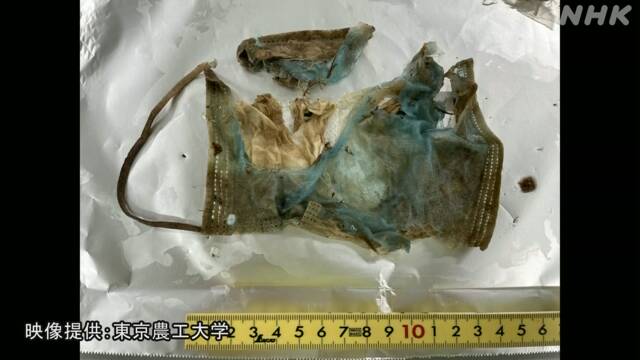Research groups such as Tokyo University of Agriculture and Technology have announced that they have confirmed that the excrement of sea turtles that lived along the coast of Iwate Prefecture contained a non-woven mask.
The group points out that as the use of masks becomes more common due to corona sickness, some disposal methods may affect marine life.
Research groups at Tokyo University of Agriculture and Technology and the University of Tokyo are analyzing the ecology of sea turtles along the coast of Iwate Prefecture. It means that I confirmed it.
It was a polypropylene non-woven mask measuring 9 cm in length and 14 cm in width, and it was in a state where the original shape could be seen with a string attached.
I have been investigating in the same place for about 15 years, but it is the first time that a non-woven mask has been found.
The group will take a closer look at the blood collected from this sea turtle and analyze how the substances contained in the mask affect marine life.
Takuya Fukuoka, a researcher at the Water Environment Conservation Laboratory, Tokyo University of Agriculture and Technology, said, "Sea turtles have the property of swallowing things that pass through the throat, and it is thought that they swallowed them by mistake for food such as algae and seaweed. Since the materials are used, it is important to properly dispose of them in consideration of their impact on living organisms. "

